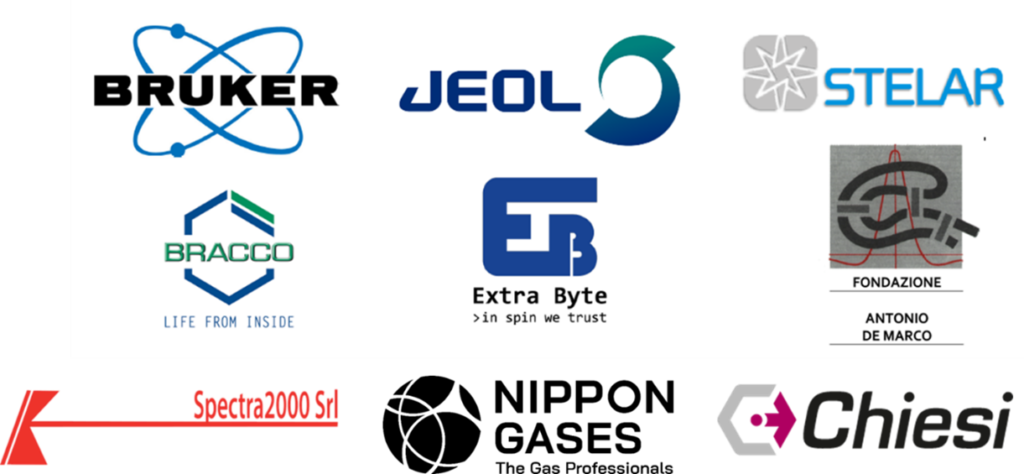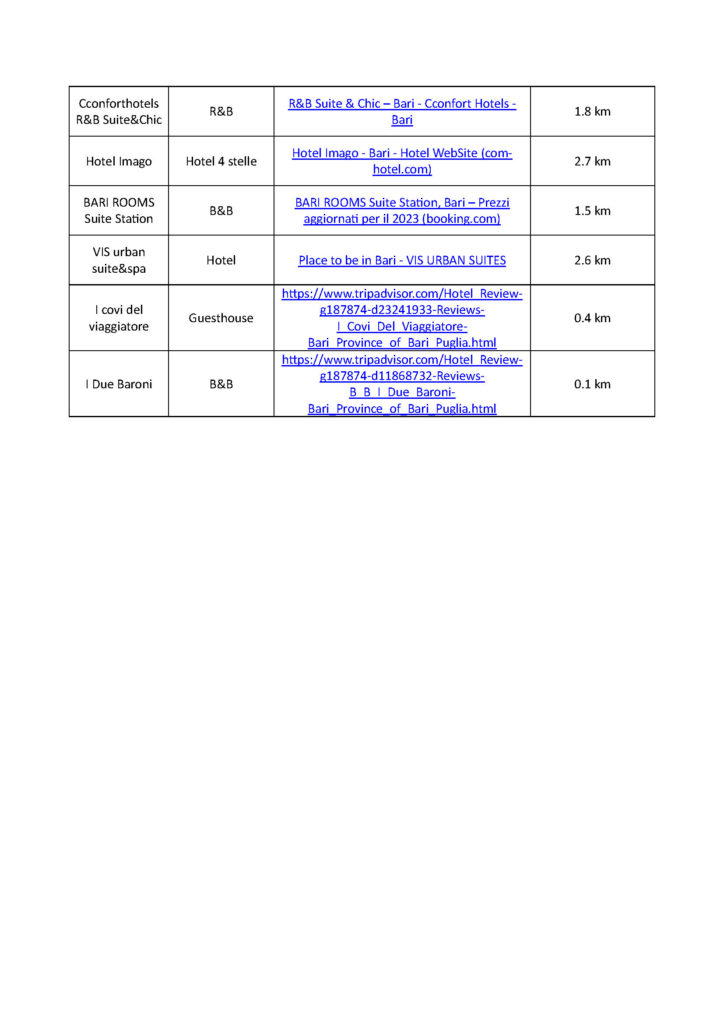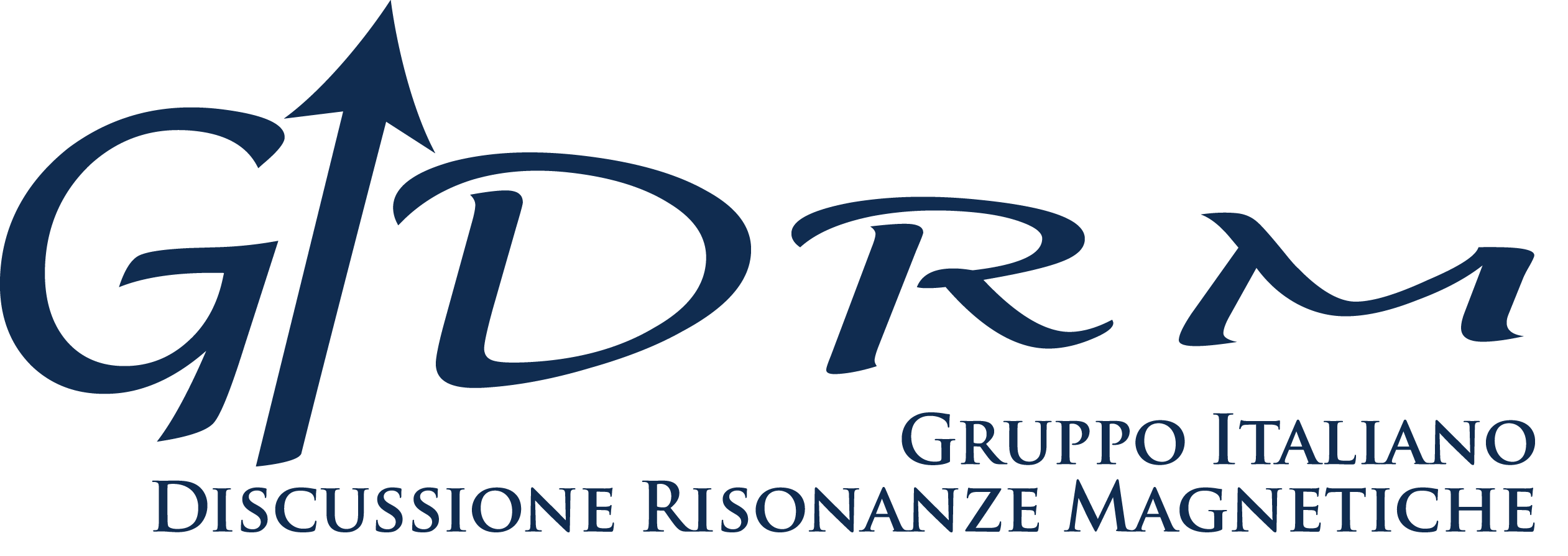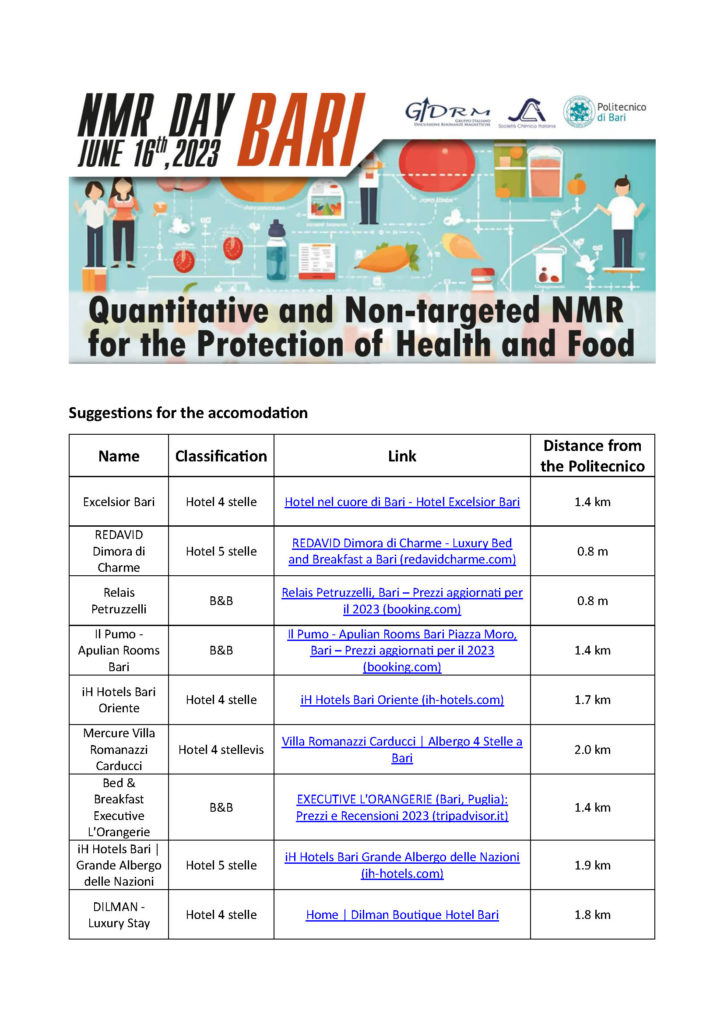

GIDRM Day: Quantitative and non-targeted NMR for the protection of Health and Food
Informations

Nuclear Magnetic Resonance (NMR) is a powerful tool for the analysis of food and biological samples. Quantitative and non-targeted NMR methods allow for the determination of multiple parameters in a single analysis, providing a comprehensive picture of the sample composition. This is particularly relevant in the context of food safety and health protection, where the identification and quantification of specific compounds is essential to ensure compliance with regulations and to prevent potential health hazards.
In this NMR Day, we will discuss the latest advances in quantitative and non-targeted NMR methods for the analysis of food and biological samples. We will focus on the use of these techniques for the characterization of food quality parameters, such as composition, authenticity, and freshness. We will also highlight the potential of NMR for the analysis of biological fluids for the diagnosis and monitoring of diseases.
It will be emphasized the importance of method validation, interlaboratory comparisons, and international standardization in NMR analysis for the protection of health and food. These practices ensure the accuracy and reliability of NMR results and enable the comparison of data obtained from different laboratories.
Overall, this NMR Day will show the versatility and potential of quantitative and non-targeted NMR for the protection of health and food, providing insights into the latest developments and applications of this powerful analytical technique.
Deadline: June 1st, June 8th, 2023
Organization
Organizing Committee
Polytechnic University of Bari
Vito Gallo
Piero Mastrorilli
Mario Latronico
Biagia Musio
Maurizio Triggiani
Valentina Petrelli
Stefano Todisco
Alessandra Ciampa
Antonino Rizzuti
Maria Trisolini
Annamaria Greco
Serena Francesca Abatematteo
Elhussein Ahmed
Rosa Ragone
Maria Michela Dell’Anna
Scientific Committee
| Michele Chierotti (University of Torino) |
| Silvia Borsacchi (CNR-ICCOM Pisa) |
| Simonetta Geninatti Crich (University of Turin) |
| Giacomo Parigi (University of Florence) |
| Antonio Randazzo (University of Napoli Federico II) |
| Laura Ragona (SCITEC-CNR, Milano) |
| Luigi Russo (University of Campania) |
| Cristina Airoldi (University of Milan Bicocca) |
| Roberto Gobetto (University of Torino) |
| Silvia Davalli (Evotec, Verona) |
| Carla Isernia (University of Campania) |
| Carla Marchioro (Evotec, Verona) |
| Vito Gallo (Polytechnic University of Bari) |
Under the Auspices of

Sponsored by

Registration Fees
| Students* | 30 € |
| GIDRM members** | 40 € |
| GIDRM non-members*** | 60 € |
* Students and PhD students from the Polytechnic University of Bari are eligible for the PhD student fee
** the GIDRM member rate applies to all GIDRM members
*** the GIDRM non-member rate includes GIDRM membership for 2023.
Registration fees includes: Access to Scientific Sessions & Exhibition, coffee Breaks & Lunch.
To register to the workshop it is necessary to purchase the desired ticket at the end of this page. To complete the purchase you will have to fill out registration form.
To buy the tickets you have to be registered in the GIDRM website
– If you don’t have it yet, create your account on the site home page, using the red button “Become a member” on the right (the account on the old site is no longer valid) and selecting Free Membership then return to this page and buy the desired ticket at the end of this page
– If you are already registered or GIDRM Member proceed to the end of this page and buy the desired ticket
The registration fee can be paid by Credit Card or PayPal or Bank Transfer. In order to pay by bank transfer please contact the organizers at pagamenti@gidrm.org.
In the case you should encounter any difficulty in filling the form, please contact us by e-mail at: bari2023@gidrm.org
The Venue
Venue
Politecnico di Bari
Via Edoardo Orabona, 4
70126 Bari BA – Italy
How to reach us
To reach the Polytechnic University of Bari, located at Via Edoardo Orabona, 4, 70126 Bari BA, you have several transportation options:
https://goo.gl/maps/XeSTKB9Be5Z3P4T39
Bari Karol Wojtyla Airport (BRI) is the nearest airport to the Polytechnic University of Bari. From the airport, you can take a train, bus, or taxi to reach the university.
From Bari Centrale railway station, you can take a train to the Polytechnic University of Bari railway station. The Polytechnic University of Bari is approximately a 10-minute walk from this station. You can also take a local bus or a taxi from Bari Centrale to the university.
If you prefer to drive, you can reach the Polytechnic University of Bari using GPS navigation by entering the address “Via Edoardo Orabona, 4, 70126 Bari BA.” Parking may be available on campus or in the surrounding area.
Poster Presentation
We are pleased announce that there is an opportunity to present posters during the event.
If you are interested in displaying a poster, submit an abstract of your poster by June 1st to the following email address: bari2023@gidrm.org.
Poster size: 700 mm width x 1000 mm height.
This is an excellent opportunity to share your research and engage with fellow participants and experts in the field. Do not miss this chance to showcase your work and contribute to the discussion on the latest trends in Nuclear Magnetic Resonance applied to health and food protection.
Oral presenters have been already selected.
Program
10:00 – Opening
Francesco Cupertino, Rector of the Polytechnic University of Bari
Leonardo Damiani, Director of DICATECh of the Polytechnic University of Bari
Gianluca Maria Farinola, President of the Italian Society of Chemistry (SCI)
Michele Chierotti, President of the GIDRM
Cristina Airoldi, Coordinator of the GIRM of the Italian Society of Chemistry (SCI)
10:30
Claudio Luchinat, Center of Magnetic Resonance (CERM), Florence, Italy
Metabolomics by NMR: achievements and perspectives
11:00
Luisa Mannina, University of Rome “Sapienza”, Rome, Italy
NMR-based metabolomics in food science
11:30 Coffee break
12:00
Roberto Gobetto, University of Turin, Turin, Italy
Two Case Studies in the Application of 1H NMR in Food and Health Protection: Authentication of Italian Hazelnut and Early Detection of the Cytomegalovirus Infection
12:30
Cristina Airoldi, University of Milan Bicocca, Milan, Italy
NMR-based identification of bioactive compounds in edible plants
13:00
Alberto Ceccon, Laimburg Research Centre, Bozen, Italy
Improved detection and quantification of cyclopropane fatty acids (CPFAs) by 1H NMR spectroscopy using a combination of homonuclear decoupling with double irradiation methods
13:30 Light lunch
14:30
Claudia Napoli, Bruker, Milan, Italy
Nutritional health by NMR based metabolic profiling
15:00
Iain Day, Jeol (UK), Welwyn Garden City – London, UK
qNMR with JASON: What is SMILEQ and how can it help your workflow?
15:30
Matthias Weber, European Directorate for the Quality of Medicines & HealthCare (EDQM), Strasbourg, France
The Use of qNMR for the Characterization of European Pharmacopoeia Reference Standards
16:00 Coffee break
16:30
Sandra Weber, Chemischen und Veterinäruntersuchungsämter (CVUA), Karlsruhe, Germany
Validation and standardization of NMR methods
17:00
Vito Gallo, Polytechnic University of Bari
Validation of qNMR and non-targeted NMR methods: towards the collective NMR analysis
17:30
Round table – Next Actions in collaborative NMR analysis
Collaborative analysis represents an important aspect of the scientific community, enabling researchers to share data, expertise, and resources. This has led to new discoveries, better understanding of complex systems, and improved reproducibility of results. However, challenges exist in collaborative NMR analysis, such as standardization of data acquisition and processing, data sharing and archiving, and communication among collaborators.
This round table will feature speakers discussing possible actions to achieve collaborative NMR analysis, emphasizing the importance of standards and best practices.
Accommodation
Here is a list of suggested hotels and accommodations and relative distances from the venue
Download the accommodations list in PDF ![]()

Issues?
If you are experiencing issues with the procedure of buying tickets (tickets not appearing or other issues) we suggest to update the page pressing F5 or CTRL + F5 on your keyboard or clicking the reload button in your browser

